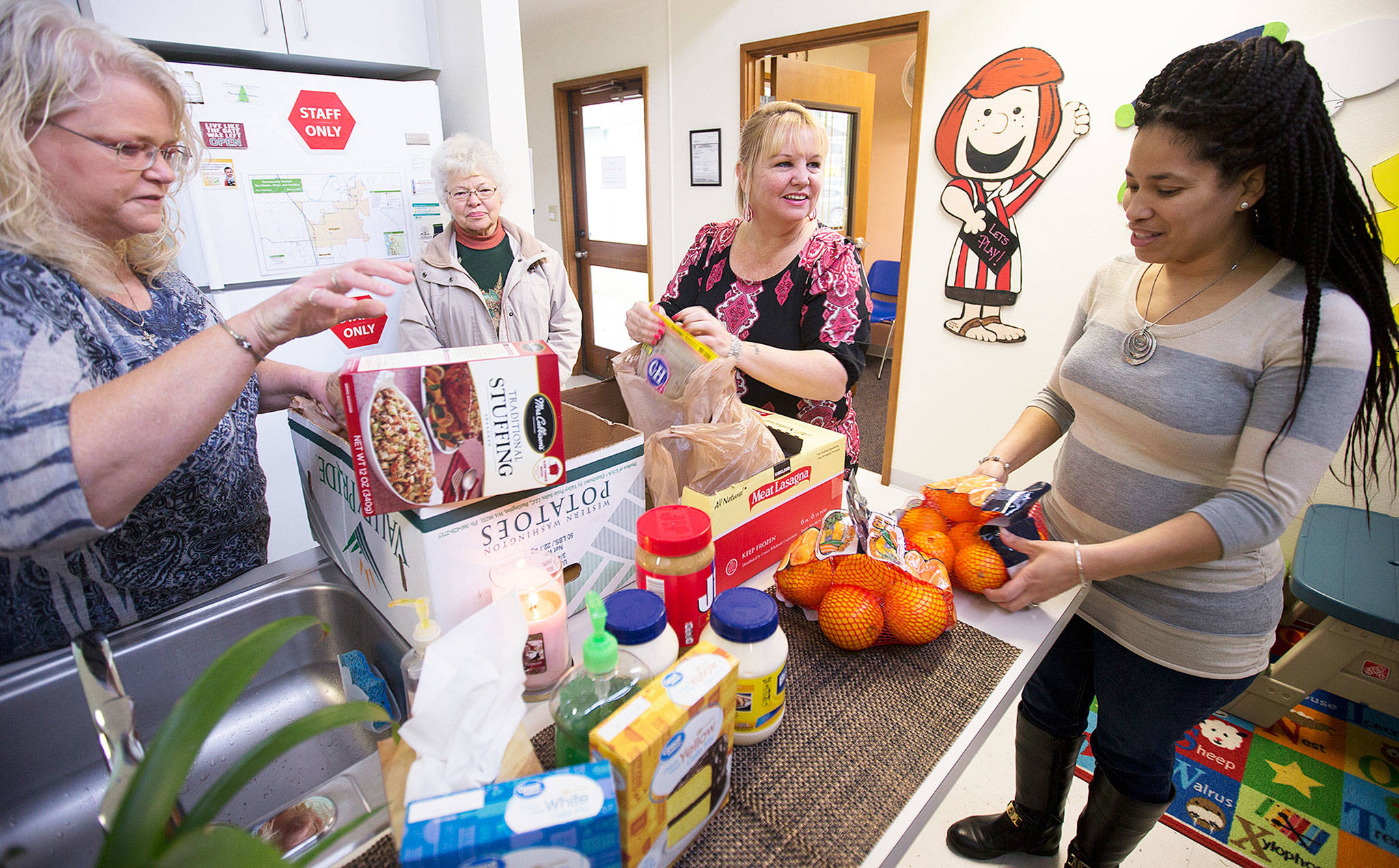EVERETT — As you learn to look at something in a different light, it can change the choices you make.
When children get into trouble at school, sometimes the root cause is trauma and toxic stress they have experienced outside the classroom doors.
If the people who provide care for them — including teachers, principals and social workers — know how to recognize and address that trauma, they can do a better job. They can try to make sure it doesn’t keep the child from growing academically, socially or emotionally.
“These strategies truly build good little human beings,” said Cheryl Larsen, the principal at Mountain Way Elementary, which serves kindergarten through second grade in Granite Falls.
Larsen is one of many people involved in an initiative called “trauma-informed communities.” It has been taking hold and growing across the country, including in Snohomish County, where 17 schools are on board. Leading the local effort is the county’s human services department and children’s wellness coalition.
The county has hired consultants to work with school districts in Edmonds, Everett, Granite Falls, Lakewood, Monroe, Mukilteo and Snohomish. The county and the districts are splitting the costs of a $225,000 contract. The earliest schools to sign on are now about halfway through their first year.
Those involved hope to reduce the discipline that takes kids out of school — such as suspensions and expulsions — and to improve truancy and graduation rates, said Liza Patchen-Short, who works for the county. They also seek to improve children’s sense of belonging, which they believe they can track with data, she said.
The work marks a shift in thinking and culture, and it’s backed by research, she said. It’s meant to benefit every student, but especially those who have experienced violence or abuse at home or those whose caregivers have struggled with mental illness or addiction.
Starting in March, the county will expand its efforts to include nonprofits, businesses, community groups and social service organizations. More than 50 groups have committed to participating.
A major step in the effort is taking place this week.
Nearly 600 people are expected to attend a sold-out conference in Everett on Wednesday and Thursday that includes workshops on becoming trauma-informed. The keynote speaker Wednesday is Dr. Nadine Burke Harris, a leading researcher on childhood trauma. Attendees are being asked to use what they learn to support children and families in their work.
The event will be followed by the Youth & Family Wellness Fair, set for 10 a.m. to 3 p.m. May 5 at Evergreen Middle School in Everett.
Meanwhile, in Granite Falls, Mountain Way Elementary is aiming to get all staff trauma-informed, said Larsen.
In schools, trauma may show up in children in the form of poor self-control and emotional management and not getting along with peers, she said. Stress, anxiety and frustration all can cause problems in the classroom.
“It’s not about a child who is acting naughty or is bad, but that their brain is not developed in the same way as a child who doesn’t go through these experiences,” she said.
At Everett’s Cascade High School, the movement toward better understanding trauma has been under way for several years, Principal Cathy Woods said. More than a dozen staff members volunteered for a workshop in late 2016.
“It sounds like a simple shift but it can be difficult,” she said. “Rather than asking a kid, ‘What’s wrong with you?’ it’s like, ‘What happened?’ … It’s recognizing that when a kid blows up in class, it might be that they come to us with stress from outside.”
Adults can modify their responses to change the outcomes of interactions, Woods said, but young people don’t always realize that stress and emotions affect their behavior. That doesn’t mean lowering expectations for conduct on campus, but finding another way to get there, she said.
It means adapting.
Rikki King: 425-339-3449; rking@heraldnet.com; Twitter: @rikkiking.
For more information about trauma-informed efforts in Snohomish County, visit snocochildrenswellnesscoalition.com, email liza.patchen-short@snoco.org or call 425-388-7254.
Talk to us
> Give us your news tips.
> Send us a letter to the editor.
> More Herald contact information.

























